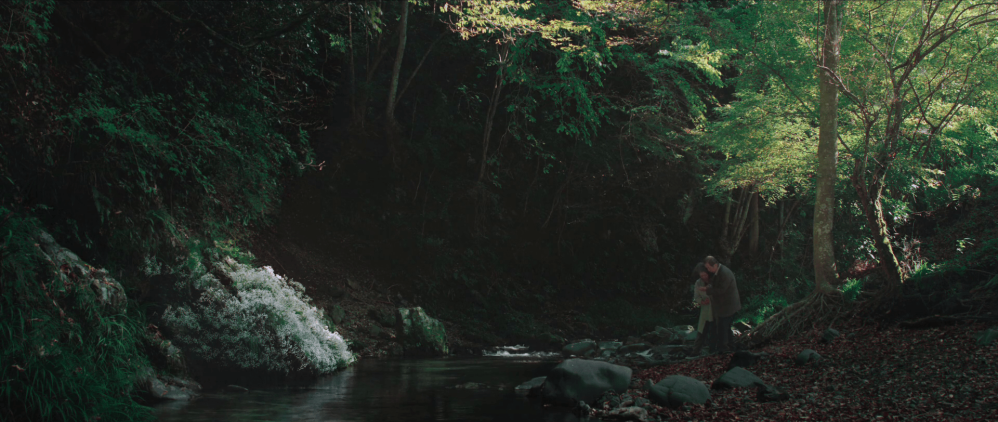Introduction
When we reviewed Takeshi Kogahara’s previous short Nagisa (2017), what impressed us the most was the skillful way by which he associated images (visual signifiers) and spoken signifiers to evoke that what remains, within the narrative, unsaid. Can Kogahara, this time tackling a more personal theme, confirm his talent as evocative poet (General-note 1)?

Review
While Koij Nakao (Shin Furukawa) lives alone, his age has deprived him of the skills that would enable him to take care of himself. Luckily, Mrs. Nishida (Tomoko Ikunishi), his caretaker, visits him every night. One night, in response to her question if he is doing fine, Koij Nakao expresses his wish to die, but Mrs. Nishida, not really taking this statement seriously, continuous her routine. Later that night, by his request, she plays a YouTube-video with forest-sounds for him.

Koji Nakao forms a beautiful example of what happens when a man, due to age, is forced to accept two insurmountable imaginary injuries. The first imaginary injury is, what we will call, the injury of abandonment. He has not only lost his wife Saki (Natsuko Fuji), but he is also, in some ways, abandoned by his children. The second imaginary injury is caused by the loss of control of his body as real. This loss of control over bodily functions not only condemns him to a life without dignity but also problematizes the ego as such.
It is these two imaginary injuries, both confronting him with the fact that he has no symbolic position within society anymore, that underpins his wish to die. That the sound of the forest, played by Mrs. Nishida by his request, transport him to a moment when he was not marked by these injuries and thus still had a symbolic position (i.e. husband) should thus not surprise us. But, at the same time, this moment confronts Koji with a promise that remained unfulfilled due to her untimely death. We even feel that Kogahara, with his impactful finale, implies that the untimely death of Saki, by making his symbolic position of husband worthless, is a direct facilitator for the deterioration of Koji’s physical state.

Mrs. Nishida – and maybe this is most painful element in the narrative – flat out refuses to hear his wish to die. Instead of engaging with his statement, her response, by providing an interpretation for this sudden statement, silences him as subject. She silences him to avoid that what she cannot cope with, which is of course the looming reality of death.
The cinematographical aspect that stand out the most in Kogahara’s composition is the natural lightning-design (cine-note 1). While the lightning-design is visually pleasing as such – nature-shots, for instance, are simply splendid – Kogahara also shows, in an elegant and esthetically pleasing way, how one can compose with lightning, how one can use the interplay between lighting and the geometry of interiors to create beautiful shot-compositions. Another aspect that we need to highlight is the splendid sound-design. That Birdland is able to become so touching is mainly function of the way Kogahara has approached sound in his narrative.

With Birdland, Kogahara confirms what he already proved with Nagisa (2017), that he is a master of poetic evocation. Once again, Kogahara skillfully uses the operation of association to evoke that what, at a verbal level, remains avoided. But while in Nagisa (2017) the unsaid concerned matters of love, the unsaid in Birdland deals with the very subjective reason underpinning Koji’s wish to die.
Notes
General-note 1: The narrative is personal for the director because it concerns an elaboration of the current reality of his own grandmother who is bedridden and difficulties communicating.
Cine-note 1: While Kogahara’s composition is composed with static shots, there is one notable exception to be noted. Within the static cinematographic whole, there are only two solitary spatial moving shot.
